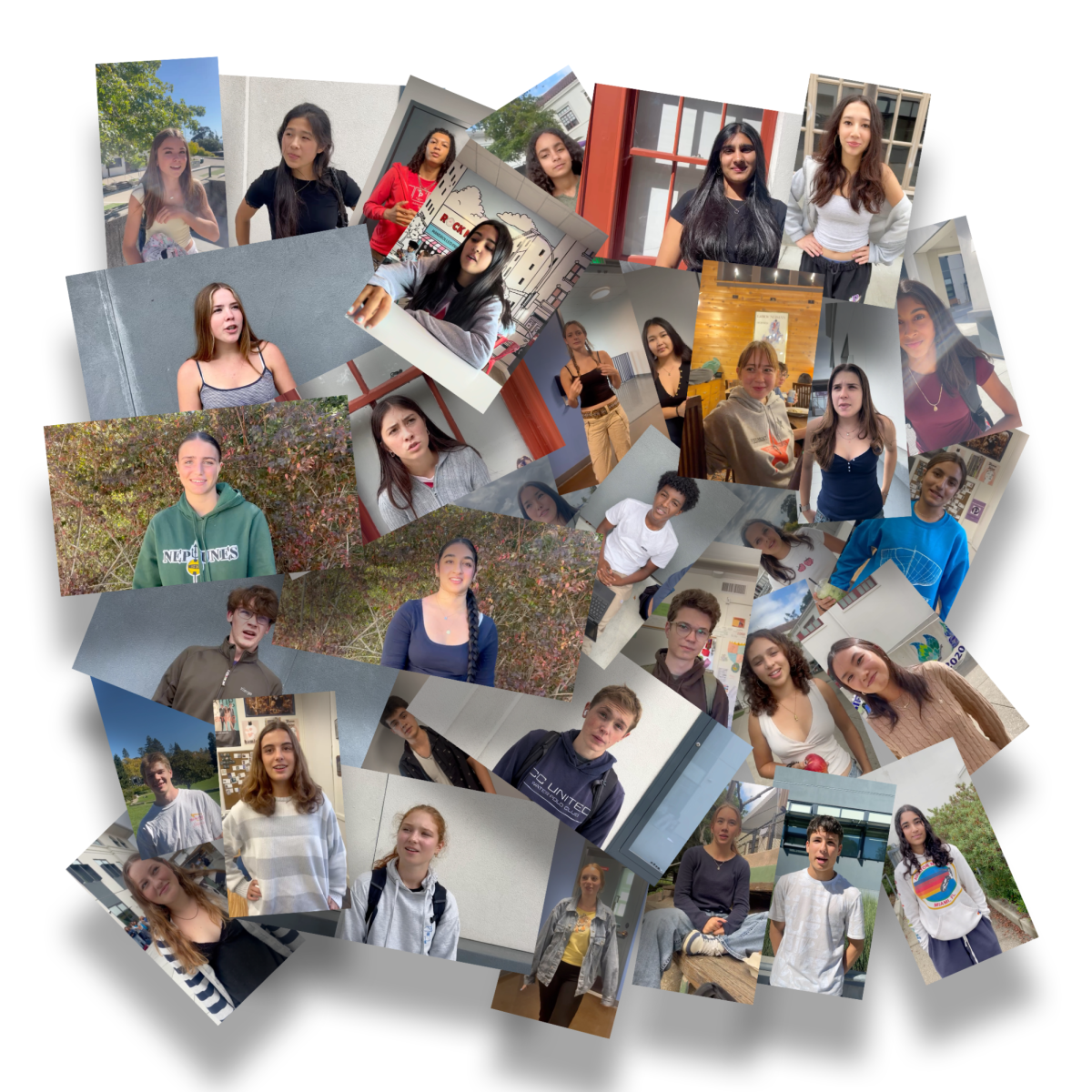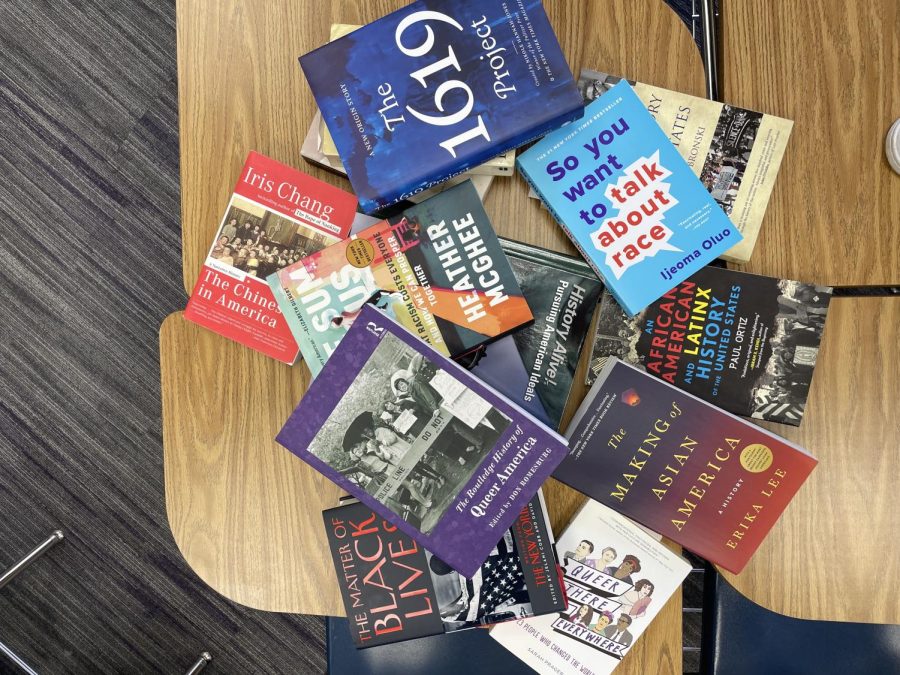A Deep Dive Into Curriculum Adoption
Sep 13, 2022
Every five to ten years, Piedmont High School goes through a curriculum adoption process. The social studies department is currently adopting new textbooks that will be piloted Fall of 2023, the science department is currently looking at a new curriculum, and the math department curriculum adoption is being pushed back a few years.
According to the California Department of Education there are no state adoptions for the grades nine through twelve. But, Education Code Section 60119(c) requires that students have sufficient standards-aligned instructional materials for four core subject areas: language arts, mathematics, science, and history–social science. There are standards or maps for every subject area.
These standards have been put in place to make sure that everything is up to date and evolving. The adoptions that are currently taking place are long overdue due to varying factors.
AP environmental science teacher Andy Willats is a part of the adoption process for the science department.
Andy said the process in the curriculum adoption is first to get together and talk about the process, check with publishers that are known to have good material, the district orders them (Mary Leon), and after that the teachers sit down for hours and compare them all.
“You’re looking to see how complete the information is, whether it’s accurate, sometimes they’re not accurate, believe it or not, and whether the reading level is appropriate,” Andy said.
If the teachers like the textbooks, they may decide to pilot the program, Andy said.
“Sometimes the way teaching is done has changed, like the people have new ideas about the best way to teach and an old textbook may not address that,” Andy said.
Andy said that they look at the curriculum that they currently have and see if it continues to be relevant.
“Part of the problem is that you have, the way you teach your class is usually not entirely adhering to the curriculum, exactly. That comes from the publisher, you’re bringing in your own things that you think are interesting, you have resources used to augment what you know, maybe a deficiency in the previous book,” Andy said.
US history teacher Allison Cota said the social studies department has decided on a new textbook for US History which is by Teacher’s Curriculum Institute (TCI), History Alive! Pursuing American Ideals, it should be a pilot starting Fall of 2023. The other social studies subjects will also be getting new textbooks. Civics will be adopting Government Alive! Power, Politics, and You by TCI, Economics recently got a new textbook this school year and the modern world history class will be adopting World, History, and Geography textbook by Impact.
Cota said that they will be switching to textbooks because it is easier to have a baseline for all of the students to be able to refer to. The law suggests that everyone needs to have access to the curriculum materials and a textbook is the best way to do that.
According to the California Department of Education, it is the responsibility of the LEA to confirm that the instructional program and instructional materials that are available to be used in the classroom do in fact align with grade level content standards.
“So what was different and a little strange this year is that what was given for US history, which is the part I was a member of, four choices to look at and compare. And in the past, we have looked at many more than that,” Cota said.
Cota said that it was hard to decide on a specific textbook because a lot of textbooks are problematic and insensitive, none of them are perfect.
“Then we narrow it to our two favorites and then we do a deep dive into those two, side by side and the way my department did it, is we identified three separate topics, and then we looked at how the textbooks handled or discussed those topics,” Cota said.
Cota said that she likes that the district is more involved in the process, the history department is doing a lot of DEI work, but it is only talking about the fact that it is important. It is not teaching the teachers how to implement DEI work into the curriculum.
Statistics teacher Auban Willats said that California is currently looking for a new math pathway.
The math department will not be going through a formal adoption for another year or two, Auban said.
“Stats and calculus had been taught by the same teacher for a long time, who retired and they had basically been teaching those courses more or less out of their head. The official textbooks that we had for those classes were 15 years old,” Auban said.
The new math pathway was supposed to be coming out next year, but it is now put off because of some controversy. But, when the new California pathway is released, the curriculum will get looked at again, Auban said.
“One of the foundations of it was suggesting that we don’t have students accelerate until high school that all freshmen take algebra, or integrated one. And then after that point, you can accelerate,” Auban said.
A lot of advanced students and their families see this as a problem because they want to be able to get as far as possible, as fast as possible, Auban said.
“In my dream, the support and professional development that math teachers would get would be different in every lesson. So that instead of having the accelerated students go faster, they went deeper,” Auban said. “There are students that are currently being harmed by what we have now. Students are coming to class feeling unsure of themselves, comparing themselves to others, and spending money on outside tutors. It is all unnecessary,” Auban said.





























